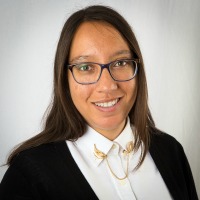
Nicola Andrews (@maraebrarian) is currently NCSU Libraries Fellow at North Carolina State University and attended the 2017 DLF Forum as an HBCU Fellow. The award, which brought 24 fellows to the conference, was part of a collaborative effort with the HBCU Library Alliance, supported by a grant from IMLS.
He aha te mea nui o te ao?
He tangata, he tangata, he tangata.
What is the most important thing in the world?
It is the people, it is the people, it is the people.
When I was a graduate student, I often considered Sara Ahmed’s concept of “conditional hospitality” – the tension between being welcomed or invited into a space, and the reality that entering unfamiliar and hierarchical spaces or power structures creates extra risk and emotional labour for minoritized or vulnerable people. Many conferences I attended as a student generously provided my peers and I with financial support. However, during these gatherings I also witnessed or experienced microaggressions and explicit misogyny, lack of accommodation for dietary restrictions or chronic illnesses, and general pressure to fully engage with conference proceedings without acknowledging the impact of also juggling school requirements, travelling to potentially unsafe cities, or the cumulative toll of our current political climate. It wasn’t easy being America’s Next Top Model Minority.
As a new professional, I was encouraged to apply for a DLF HBCU Fellowship after hearing so many of my peers speak of the forum as a highlight in their year – and I was delighted to be selected as a DLF HBCU Fellow. However, as I prepared to travel to the traditional territories of nations including the Iroquois, Seneca, and Shawnee (also known as Pittsburgh), I wondered how the DLF would truly practice good stewardship and accountability in welcoming 42 new Fellows to their community. Despite my fears, it became apparent that much labour and planning went into moving the Liberal Arts Colleges/HBCUs Preconference and DLF Forum closer to becoming a true community of care. In thinking beyond diversity quotas and actively implementing practices such as gender-inclusive restrooms, childcare, allergen-free food options, a quiet room, and a robust Code of Conduct; the DLF Forum created an environment that held space for difference in our experiences, and acknowledged our humanity. It was humbling to see people be proactive in declaring their pronouns, or for panel moderators to insist on use of the microphone – and I could feel the positive difference this made for attendees, myself included. I am grateful for the many hours of volunteer work that were necessary in making such thoughtful preparations; and I am hopeful I can continue to contribute to the DLF community.
The value and visibility of labour became a consistent theme for me throughout the week. We were called upon to reflect on how we recognize and reward labour, from Emily Drabinski’s Twitter rally to tip housekeeping staff five dollars every day; to the acknowledgements by many of Pittsburgh’s long history of manufacturing and industry. Rafia Mirza and Maura Seale presented on gendered labour practices; highlighting the hypervisibility and privilege of digital scholarship and technological production, over the maintenance-driven work of reference, instruction, and relationship building. Multiple presentations urged examination of our shared biases and policies around student, part-time, temporary, and non-unionized employees; and taking steps to overcome resilience narratives, Stress Olympics, and vocational awe.
While the forum provided pause to reflect on the unseen work that we do, it was also an opportunity to consider the work we have yet to undertake. I was given opportunity to reflect on my own work in public services and social justice, and the ways I have seen different libraries and library work valued by patrons, governing institutions, and colleagues. For my part, I will continue to consider how to make emerging technologies and digital spaces more inclusive and accessible; and how I can use the privilege I have to spur allyship as a new professional. I am grateful to the DLF community for modelling inclusivity through hosting a large-scale event; and providing an avenue to connect with peers whose interesting and brilliant work have provided many with inspiration and learning.
